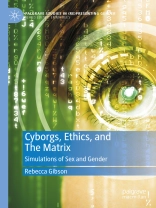The Matrix (Lana Wachowski and Lilly Wachowski 1999) has permeated our cultural consciousness for two decades, working its way into such common parlance as “a glitch in the Matrix, ” and the idea of taking the Red Pill. With the release of the fourth movie, The Matrix Resurrections (Lana Wachowski 2021), and the confirmation of the franchise being a metaphor for gender transition, this book examines how the entire franchise contributes to the discourse on sex and gender, and how it has been instrumental in propelling the creation of new types of cyborg technology. This book centers on the main philosophical theme of The Matrix, know thyself, and relate it to the quest for authenticity which creates our identities—be they human, or human “enough”—as we move through the world.
Tabela de Conteúdo
1. The Cultural Impact of The Matrix Series.- 2. The Matrix: At the Source, or Where it all Began.- 3. The Animatrix and The Matrix Comics: Limitless Potential for Imagining New Cyborg Technology.- 4. The Matrix Reloaded and The Matrix Revolutions: Cephalopod Robots and the Nature of Truth.- 5. The Matrix Resurrections: Love Outlives Death.- 6. So: Who Are You? Virtual Reality, DSI, and Personality.
Sobre o autor
Dr. Rebecca Gibson is an Assistant Professor of Anthropology at Virginia Commonwealth University, specializing in biological anthropology. Her published works include Desire in the Age of Robots and AI: An Investigation in Science Fiction and Fact (Palgrave Macmillan, 2019) and The Corseted Skeleton: A Bioarchaeology of Binding (Palgrave Macmillan, 2020).












